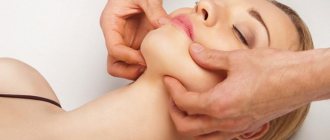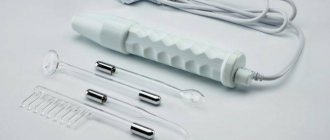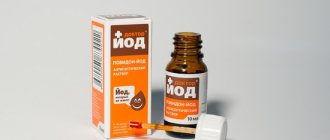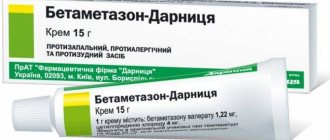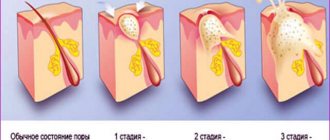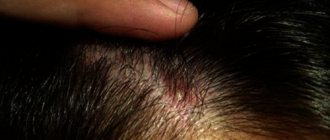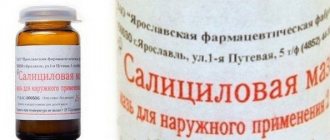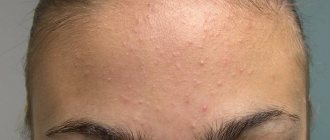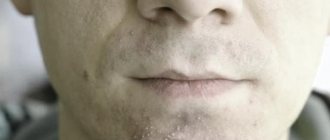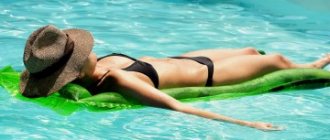Is it worth visiting a solarium for acne?
Rashes make the skin sensitive to any external factors. Ultraviolet radiation is no exception. Solarium cannot harm the skin when used wisely, and also really helps with acne on the face.
Ultraviolet rays have bactericidal and anti-inflammatory properties. Under their influence, an environment is formed on the surface of the skin in which pathogenic microorganisms cannot multiply. Therefore, inflammatory processes are reduced.
In addition, under the influence of ultraviolet radiation, vitamin D is produced, the immune system is strengthened, which promotes the healing and resorption of existing acne.
Solarium helps against acne by relieving stress and helping to improve hormonal balance. Therefore, acne is reduced if the cause of its appearance was metabolic disorders and nervous conditions.
Result before and after visiting the solarium
The solarium dries out the upper layer of the dermis. This normalizes the functioning of the sebaceous glands, less sebum is produced, and the pores are not so clogged and inflamed . However, to get a good result, you should still follow some rules:
- It is better to go to the solarium with clean skin, so a few weeks before the course you should undergo cleansing procedures from a cosmetologist. The pores will breathe better and the flow of oxygen will improve. Tanning will not cause additional stress to the skin.
- Before tanning, you should not use creams, decorative cosmetics, only special care and protective products. For problem skin, it is better to give preference to products without bronzers, tingles, enhancers, but simply with a moisturizing effect. Too damaged dermis will only be more stressed and the number of acne will increase.
- After the session, it is necessary to use moisturizing and soothing products. The skin will not try harder to protect itself, produce more sebum, become rougher and clog pores.
Scrubbing the face before the solarium
But the solarium is not a panacea for acne on the back and face . Most often, acne is a consequence of problems within the body. Rashes occur due to hormonal imbalances, disturbances in the functioning of the intestines, thyroid gland, reproductive organs, and infections. Therefore, a solarium will be fully effective only in the case of complex therapy, including hardware procedures, care products and the necessary treatment.
The consequences of acne are spots and scars. Acne marks spoil your appearance, make your complexion unattractive, and reduce self-esteem. Ultraviolet rays promote faster healing and recovery from acne .
In a solarium, the pigment melanin is produced, the skin acquires a darker shade. Against this background, acne marks become less noticeable. UV rays begin to stimulate metabolic processes and cell regeneration. Therefore, the spots begin to heal faster. They fade and are compared with the rest of the skin color. Solarium is very useful for acne spots.
However, if the rashes have other causes, and not just pore contamination and increased sebum production, then its action will not bring results..
You should not visit a solarium in the following cases:
- During pregnancy, breastfeeding and menstruation. Acne during this period is a temporary phenomenon.
- For skin infections and diseases such as dermatitis. Ultraviolet radiation has a negative effect in this case.
- If you have an allergy, solarium can provoke an increased reaction. It only activates all processes. In addition, a person may just be allergic to ultraviolet radiation.
- During adolescence, the skin is still tender and sensitive; acne occurs as a result of hormonal changes. Ultraviolet radiation can severely injure the dermis and cause intensification of processes.
- Solarium should not be combined with taking oral contraceptives, antibiotics, or antidepressants.
- You should not sunbathe if you have vitiligo or hyperpigmentation. The skin is too dry, sensitive, ultraviolet radiation damages it and reduces immunity. The production of a new layer increases, keratinized cells appear, which clog the pores and become inflamed.
- For oncology, exacerbation of chronic diseases.
- If there are many moles on the body.
It is not recommended to visit a solarium during pregnancy.
When treating acne with sessions in a solarium, it is important to maintain a balance. Visiting too often and for too long will lead to a backlash. The skin will become dry, sebum will be produced too much, dead skin cells will clog the pores and become inflamed. The dermis becomes rougher, and when damaged it cannot resist pathogenic bacteria well enough.
To benefit the skin, it is better to start procedures with a minimum time. At the first sessions, 2-3 minutes under the lamps will be enough. Then you can gradually increase the time. You should not be under the artificial sun for more than 10 minutes at a time.
For recovery, 5-6 procedures will be enough. The skin will dry out a little and acquire a light, radiant tint. Experts recommend a formula of 50 to 48, where the first number is the total number of hours per year, and the second means the number of hours for a break. You need to rest for at least two days between procedures. It is optimal to visit the solarium twice a week.
Read more in our article about tanning beds for acne.
Do UV rays have beneficial effects?
Most people are sure that the sun simply burns acne on their face, however, this is not entirely true. Experience shows that inflammation simply dries out. There is also information about getting rid of acne spots using a solarium. The complex of these qualities of UV rays ultimately helps to make the face clean. Although in this case the main thing is not to overdo it, since too much sun has a negative effect on the skin and leads to its aging.
Despite this effect of the device, it will not be possible to completely overcome inflammation. Everyone knows that acne on the skin is formed as a result of disruption of the body. The reason lies in disorders of an internal nature, for example, failure of metabolic processes, infection, endocrine diseases. This means that they can be completely overcome only by restoring health.
And here the question arises: is it possible to go to a solarium with acne? You can get the answer by reading our article.
Solarium for acne: benefits
Many girls are interested in the question: “Is it possible to get rid of acne on the face using a solarium?” . This topic becomes more relevant in the autumn and winter seasons.
It has been proven that artificial UV rays have the same qualities as the real sun:
- have an antibacterial effect;
- Thanks to disinfection, pathogenic microorganisms are removed;
- tanning visually eliminates stains;
- give the skin a beautiful shade;
- help the body produce vitamin D.
To obtain a full and long-lasting effect, you need complex actions, which will include cosmetic procedures for the skin and taking the necessary medications for inflammation.
An additional point is to follow a diet - completely avoid preservatives and chemical additives, increase the consumption of dairy products, meat, green tea and liquids.
Reverse effect after the procedure
There are girls who claim that they developed acne immediately after visiting a solarium, is this possible? After all, if UV rays have the effect of cleansing the skin, how can inflammation appear afterwards?
It turns out that this is still possible. This is due to the fact that solarium rays lead to roughening and dying of the skin, which means that procedures are required to exfoliate cells and make room for young ones. Experts recommend taking a shower or visiting a sauna a few hours after visiting this procedure. If this is not done, dead cells will clog the pores, which will lead to inflammation.
To protect yourself from the appearance of acne after solarium, you need to carefully monitor the cleanliness of your facial skin by carrying out cleansing peels, as well as using masks.
How to go to the solarium correctly?
Many are confident that the more often such procedures are performed, the better. However, this is not the case, as in the case of sun exposure, the main thing is not to overdo it.
The maximum time per visit should not exceed 10 minutes. You are allowed to go to the solarium no more than 2 times a week. Do not forget that heavy tanning can lead to cancer.
The tan obtained in a cosmetic device does not wash off for a long time and is visible after the first procedure, and lies quite evenly on the skin. If you decide to get a full-body tan, be sure to take care of protecting your eyes, breasts and hair. Before the procedure, you should not peel the skin, and afterward you should definitely moisturize the skin with a nourishing cream.
Contraindications to visiting a solarium
Despite the benefits of this procedure, it actually also has its limitations.
Let's consider who should refuse to visit the solarium:
- people with very fair and sensitive skin;
- having many moles or freckles on the body;
- predisposed to cancer;
- people who develop acne after tanning;
- those suffering from hyperpigmentation;
- in the presence of tuberculosis;
- with purulent rashes, as well as acne;
- with any cardiovascular pathologies;
- during pregnancy or breastfeeding;
- during menstruation;
- before reaching the age of 14 years.
Despite the positive reviews about the results of artificial tanning, it is better to visit a dermatologist and undergo the necessary tests before starting the procedures.
All this will be additional confirmation of the absence of contraindications for visiting the solarium.
Visiting a solarium has recently become a very popular cosmetic procedure. At the same time, many people believe that a solarium will not only help you get an even and beautiful tan, but also cope with certain skin diseases, such as acne. Is it really? How exactly does the radiation in a solarium chamber affect the skin, and will it really help get rid of acne? We will try to “shed light” on these questions in this article.
Does a solarium help with acne on the back and face?
A solarium is an almost complete substitute for the sun. In the autumn-winter period, it relieves the blues and stress, strengthens the immune system, gives the skin a healthy color and radiance. But tanning beds are also believed to be beneficial for acne.
However, rashes make the skin sensitive to any external factors. Ultraviolet radiation is no exception. Therefore, the procedure should be carried out carefully and in compliance with all nuances.
Solarium cannot harm the skin if used wisely:
- There are no dangerous rays in it, and sunbathing in the cabin is safer than in the open sun.
- There is a general strengthening of the body.
- You can stop the course at any time.
Solarium really helps with acne on the face. Ultraviolet rays have bactericidal and anti-inflammatory properties. Under their influence, an environment is formed on the surface of the skin in which pathogenic microorganisms cannot multiply. Therefore, inflammatory processes are reduced.
Solarium helps against acne by improving mood, relieving stress and helping to improve hormonal balance. Therefore, acne is reduced if the cause of its appearance was metabolic disorders and nervous conditions.
Cosmetology expert
The solarium dries out the upper layer of the dermis. This normalizes the functioning of the sebaceous glands, less sebum is produced, and therefore the pores are not so clogged and inflamed. Therefore, in some cases, a solarium will help get rid of acne. However, to get a good result, you should still follow some nuances:
- It is better to go to the solarium with clean skin, so a few weeks before the course you should undergo cleansing procedures from a cosmetologist. The pores will breathe better and the flow of oxygen will improve. Tanning will not cause additional stress to the skin.
- Before tanning, you should not use creams, decorative cosmetics, only special care and protective products. For problem skin, it is better to give preference to products without bronzers, tingles, enhancers, but simply with a moisturizing effect. Too damaged dermis will only be more stressed and the number of acne will increase.
- After the session, it is necessary to use moisturizing and soothing products. The skin will not try harder to protect itself, produce more sebum, become rougher and clog pores.
After the session, it is necessary to use moisturizing and soothing products.
But do not think that a solarium is a panacea for acne on the back and face. The fact is that most often acne is a consequence of problems within the body. Rashes occur due to hormonal imbalances, disturbances in the functioning of the intestines, thyroid gland, reproductive organs, and infections. Therefore, a solarium will be fully effective only in the case of complex therapy, including hardware procedures, care products and the necessary treatment.
And here is more information about the La Roche Posay sunscreen.
Is it possible to go to a solarium with acne?
https://www.youtube.com/watch?v=0j9SOOsUJ6I
Rashes on the skin make it vulnerable to any external influence. The same goes for the artificial sun. But the problem does not make the solarium a forbidden pleasure, because:
- there are no harmful rays among its rays, staying in the cabin is safer than under the open sun;
- the procedure strengthens the body as a whole, also affecting the skin;
- it is done in several sessions, and if a negative effect is noticed, you can always interrupt the course.
Is it effective against the effects of acne?
In addition to the acne itself, its consequences - spots and scars - may be of concern. Acne marks spoil your appearance and make your complexion unattractive and unhealthy. And at the same time they reduce self-esteem. It is believed that ultraviolet rays help fight not only breakouts, but also promote faster healing and recovery from acne. This is true.
In a solarium, the pigment melanin is produced, the skin acquires a darker shade. Against this background, acne marks become less noticeable. In addition, UV rays begin to stimulate metabolic processes and cell regeneration.
Therefore, the spots begin to heal faster. They fade and are compared with the rest of the skin color. Solarium is very useful for acne spots. The skin acquires a beautiful golden hue, the face is filled with radiance.
When is it better to stop using a solarium?
However, a solarium may not always provide benefits for acne. If the rash has other causes, and not just pore contamination and increased sebum production, then its action will not bring results.
In addition, you should not visit the solarium in the following cases:
- During pregnancy, breastfeeding and menstruation. Ultraviolet radiation can disrupt hormonal levels and lead to serious problems. Acne during this period is a temporary phenomenon.
- For skin infections and diseases such as dermatitis. Ultraviolet radiation has a negative effect in this case.
- If you have an allergy, solarium can provoke an increased reaction. It only activates all processes. In addition, a person may just be allergic to ultraviolet radiation.
- In adolescence, the skin is still tender and sensitive, especially since acne occurs as a result of hormonal changes. Ultraviolet radiation can seriously injure it and cause intensification of processes.
- Solarium should not be combined with taking oral contraceptives, antibiotics, or antidepressants.
- You should not sunbathe if you have vitiligo or hyperpigmentation. The skin is too dry, sensitive, ultraviolet radiation damages it and reduces immunity. The production of a new layer increases, keratinized cells appear, which clog the pores and become inflamed.
- For oncology, exacerbation of chronic diseases.
- If there are many moles on the body.
How to use it correctly to treat acne?
A solarium against acne is visited in compliance with the following rules:
- The skin must first be cleansed of cosmetics and sebum.
- It is recommended to take a shower before the procedure.
- During the procedure, eyes, mammary glands and hair must be closed.
- If there are tattoos on the body, then they should be covered, since when exposed to ultraviolet light, some ink tends not only to lose its original appearance, but also to give an allergic reaction.
- Before going to the solarium, you should not use a scrub for acne, as small scratches when exposed to sunlight can itch and burn.
Many are confident that the more often such procedures are performed, the better.
A long session can dry out sensitive skin, so it is advisable to apply a moisturizer or lotion after the procedure. It is better to cover large age spots and birthmarks with adhesive tape.
The duration of exposure to ultraviolet rays is strictly adjusted depending on the person’s age, the degree of acne, sensitivity to ultraviolet radiation, and the presence of concomitant diseases. It is best to start tanning for acne within 5 minutes.
Then, with each hike, the duration of stay can be increased, bringing it up to 20 minutes. It is not recommended to be exposed to radiation for more time in one session, as the risk of developing cancer significantly increases.
Dermatologists offer various acne treatment regimens. Initially, a deep cleansing of the face and entire body is carried out. Then a vitamin mask or serum is recommended.
This is secured by the influence of the Darsonval apparatus, which, with alternating current impulses, accelerates the absorption of healthy vitamin cocktails. The solarium will serve as a consolidation of the obtained result. It will dry the dermis, minimize the risk of bacterial infection entering the pores and give the skin a flawless appearance.
How many procedures are needed for results?
When treating acne with tanning sessions, it is important to maintain a balance. Visiting too often and for too long will lead to a backlash. The skin will become too dry, sebum will be produced too much, dead skin cells will clog the pores and become inflamed. The dermis becomes rougher, and when damaged it cannot resist pathogenic bacteria well enough.
To benefit the skin, it is better to start procedures with a minimum time. At the first sessions, 2-3 minutes under the lamps will be enough. Then you can gradually increase the time.
Watch the video about whether solarium helps with acne:
But it is important to remember that you cannot be under the artificial sun for more than 10 minutes at a time. For a healing effect, 5-6 procedures will be enough. The skin will dry out a little and acquire a light, radiant tint.
Experts recommend the formula 50 to 48. In the first case, this is the total number of hours per year. It should not be exceeded to avoid dangerous diseases. And the number 48 means the number of hours for a break. You need to rest for at least two days between procedures. It is optimal to visit the solarium twice a week.
And here is more information about the Vichy sunscreen.
Despite all the beneficial properties of artificial sun, you should consult your doctor. Within reasonable limits and subject to all nuances, a solarium helps reduce acne and remove traces of it. But it is not a complete medicine. A solarium will be effective only in complex therapy.
It is known that melanin is simply irreplaceable for tanning. You can speed up its production by exposure to sunlight, as well as by using creams and tablets. There are also special ampoules for injections. However, doctors strongly do not recommend injections.
When buying a product, many people wonder whether it is possible to tan with sunscreen. For example, if you smear it on the beach or for a walk. The answer is yes. However, it is important to understand how the rays penetrate the cream when choosing different SPF.
In many ways, the effect of the sun on the skin is positive - vitamin D and serotonin are produced, and the condition improves. But it also has a negative effect on a person, especially on the face, if combined with the wind.
Sunscreen foundation is considered a rather interesting product. It not only protects your skin from harmful UV rays but also creates a perfect makeup look. How to choose the right foundation with sun protection?
All doctors recommend using facial products after sunbathing. This will help her recover, and problems such as pigmentation and peeling will not affect her. What can you effectively apply to your skin after sun exposure?
Treatment of acne using UV radiation in a solarium
To prevent deterioration of your skin condition, it is recommended to follow simple rules:
- The duration of one session should not exceed 3 minutes.
- The frequency of the procedure is 1 time per week.
- If the skin tolerates UV radiation well, you can increase the duration of one session to 5 minutes. However, staying inside the chamber for more than 10 minutes is not recommended. The frequency of visits to the solarium also increases to 2 times a week.
You should not strive to get a beautiful tan if the original goal was to cure acne. It is recommended to think about your health first. It is important to provide comprehensive skin care. In addition to visiting the solarium, you need to cleanse the skin in a timely manner, since dead epidermal cells can clog into the pores, which, along with the production of sebum, will lead to the formation of comedones.
Vitamin masks should be used. It is recommended to combine a solarium and a visit to a cosmetologist. Deep cleansing of the skin is carried out, for which the Darsonval apparatus can be used. At home, the effect of the procedure for removing dead epidermal cells will be weaker.
Vitamin face masks
Additionally, it is recommended to adhere to a diet. In this case, we do not mean reducing the amount of food consumed, but increasing its quality. So, fried, fatty, smoked and highly salted, spicy foods are excluded from the diet, at least for the duration of acne treatment. You need to add sweets and flour products to this list. You should eat natural food that does not contain preservatives or chemicals. The following is included in the diet:
- lean meat, fish;
- fresh vegetables, fruits;
- dairy products;
- liquid in large quantities, it is recommended to drink green tea.
Solarium is a great help in fighting acne
Solarium is a fairly popular procedure in the beauty industry these days. In addition, most girls believe that here you can not only get a beautiful tan, but also get rid of some skin problems, for example, acne. Is this really the case, and does a solarium save you from acne? How does ultraviolet radiation from a solarium affect the skin, and does it help fight acne? The answers to the questions posed will be revealed in this material.
The benefits and harms of sun rays for the skin
To be fair, we note that both groups of people are partly right, since tanning can both provoke the appearance of acne and rid the skin of this scourge. Consequently, the issue of the exclusively beneficial influence of the sun is still controversial. And there is an explanation for this.
The fact is that an overdose of ultraviolet rays is a serious stress for the body. Sun rays contribute to the formation of free radicals in the skin, which destroy elastin and collagen, which subsequently leads to rapid withering and aging of the skin. Excessive tanning can cause dehydration, drying out the sweat and sebaceous glands. And this always manifests itself as rashes on the skin.
But if you take sunbathing in moderation, this procedure will not only promote the production of vitamin D, but will also have a beneficial effect on the condition of the skin. Therefore, modern doctors recommend sun treatment for people with psoriasis, acne and other skin diseases. In a certain dosage, ultraviolet light accelerates the production of vitamin D, which ensures the absorption of phosphorus and calcium, helps strengthen bones and muscles, increases the overall tone of the human body and accelerates the regeneration of skin tissue. Therefore, with proper tanning in the sun or in a solarium, you can really heal your skin, dry out pimples and subsequently get rid of acne. But, before going to a resort or solarium, you need to visit a doctor and find out the true cause of the skin disease. Otherwise, the effect of ultraviolet radiation on the skin will only have a temporary effect.
Only a specialist can assess the condition of your skin and develop an ultraviolet treatment regimen. Moreover, you should not rely on the fact that with the help of a solarium or tanning in direct sunlight, acne will completely disappear once and for all. To eliminate skin rashes, complex therapy is necessary, so you will have to follow all the doctor’s instructions.
How does solarium affect acne?
It has long been proven that in dosed amounts, the sun's rays have a rather beneficial effect on the entire body, so even doctors prescribe sunbathing and UV irradiation for certain skin diseases.
But does tanning help with acne? Many people have experienced the healing properties of the sun's rays at least once. In summer, when there is a lot of sun, the skin becomes clearer and healthier with an even color. Solarium is an artificial sun substitute. Many people use it in cold seasons, when the body lacks ultraviolet rays with their healing power. The artificial UV rays of a solarium, just like the rays of the sun, are endowed with positive properties, such as:
- antibacterial and disinfecting effect;
- disinfectant effect, the UV rays of the solarium remove many types of harmful bacteria (it is because of this property that the solarium is so effective in helping to get rid of acne);
- evens out skin color and gives it a healthier appearance;
- enriches the skin with vitamin D.
However, it must be remembered that all these properties are suitable for people with a skin type that favorably tolerates exposure to ultraviolet radiation. These properties do not apply to people who have light skin tones, or to those who have numerous moles or freckles on their body. In addition, many people mistakenly believe that the ultraviolet rays emitted by a solarium burn away acne. In reality, ultraviolet light simply dries out acne, and the antibacterial effect of the solarium eliminates inflammation inside the skin.
This complex of ultraviolet properties often completely eliminates the rash, without leaving even traces of acne. In addition, the solarium helps against acne not only on the face, but also anywhere, be it the arms, chest or back. Moreover, areas of the skin that are constantly hidden from the sun by clothing require sun and air baths to a greater extent.
What will help cope with this problem?
Following a diet will help improve the condition of your skin, that is, reducing the consumption of fried and fatty foods, spicy and salty foods, and artificial preservatives; increasing the amount of plant foods in the diet. Regular cleansing of the skin will free the pores from excess subcutaneous fat. A dermatologist can tell you which pills or creams will help in your case.
So, what conclusions can be drawn?
Visiting the solarium is allowed if you have acne on your body. Many people notice that after tanning their skin becomes healthier. Ultraviolet light also masks the presence of acne spots. However, sunbathing should be done in moderation, as radiation can negatively affect your overall health. A competent approach, and not just following fashion, will help you look more beautiful and be healthier.
The impact of ultraviolet radiation on the human body in moderate (!) doses has only a beneficial effect. Those who like to sunbathe in the sun in summer and in solariums in winter can pay for their excessive love of the sun's rays and beautiful skin color. People who live in the middle zone are recommended to receive small doses of sunlight. Therefore, the desire to escape to hot countries can only lead to undesirable consequences.
Excessive use of sunlight can lead to the launch of neoplasms in the body. in moderate quantities it helps production, but in excess, not only does the skin lose natural moisture, but cancer can become the most unpleasant reminder of hot summer and sun.
Tanning, according to many doctors, is not only not useful. But even harmful. The human body is not able to withstand the active rays of the sun, which are exposed to it for several hours, and the reaction occurs in the best case and oncology in the worst, which gives reason to think about where and how to spend your vacation.
Many people use solariums for acne. Cosmetologists say that solarium, of course, has little effect on acne, as it dries the skin and reduces the secretion of sebum, which clogs pores and forms pimples. But acne formation is more an internal problem of the body than an external one.
A solarium will not cure acne forever. Constant exposure of acne to ultraviolet light will solve this problem only for a short period of time. Then comes a phase of even more active work of the sebaceous glands, which leads to deterioration of the skin condition.
Professional cosmetologists recommend tanning beds for acne only as accompanying procedures to the main treatment. A solarium will help speed up the healing process of existing inflamed areas. After procedures in a solarium, it is worth choosing a competent program for cleaning and treating inflammation on the skin.
An important, or rather the main remedy for acne is diet. You should also take hormone tests to make sure there is no hormonal imbalance in the body that causes acne formation.
Before you go to the solarium, you should know a few rules on how to use the solarium. People go to the solarium with a clean face and body. Do not shower before tanning using scrubs. Be sure to remove all makeup from your face. Don't forget to protect your eyes, hair and breasts from exposure to ultraviolet radiation. Consult a salon employee about all the available buttons on the device. You should have the independent ability to leave the solarium if you feel discomfort. After tanning, moisturize your skin with cream.
The salon consultant will tell you how many minutes to go to the solarium for acne. It depends on your skin type and its sensitivity to ultraviolet light. A competent solarium employee individually selects a tanning program for each client.
Do not forget that the solarium must have a high-quality set of lamps and equipment. Otherwise, you will get nothing but harm to your health. We advise you not to use a solarium to treat acne as the only panacea. Since this only temporarily stops the development of acne. Approach the problem comprehensively. Start with diet and proper nutrition. Avoid harmful influences on the skin and cleanse it whenever possible. And most importantly, never solve health problems on your own; be sure to consult with professionals. Acne is not an exception, but the same disease that professional cosmetologists will help you overcome.
Going to the solarium is a fashionable trend for our women and even men, especially in winter. The solar miracle camera is credited with a lot of useful properties. Indeed, the sun's rays have many beneficial effects on our body. In particular, we notice this clearly on our skin. It becomes smoother in the summer, acquiring a healthier appearance. Considering this, many have decided to try a tanning bed for acne. Moreover, nowadays you can buy a home solarium and sunbathe without leaving your home.
When talking about products that have some effect on the skin, it is impossible to give only positive or only negative feedback in favor or against solariums. It all depends on your individual characteristics. Its active force is UV rays. The same rays that many people protect themselves from in the summer by applying special creams. The properties of ultraviolet radiation are close to the properties of antibacterial agents. They disinfect, that is, kill pathogenic bacteria. It is pathogenic bacteria that multiply that cause skin inflammation and, as a result, the appearance of pimples and acne.
This is why our skin becomes better in the summer. And, it must be said that for many, after going to the solarium, pimples and blackheads, if not completely disappeared, then became smaller in size and less inflamed,
that is, less noticeable. Positive results were also noticed after his visit by those who had acne on their face (post-acne). In most cases, such scars smoothed out.
In what cases is it better to refuse a solarium?
Before you run to the solarium, you need to remember that there are conditions under which you cannot use the “artificial sun”.
- Excessive UV rays lead to the growth of tumors and various formations. Therefore, if there is a predisposition to cancer in your family, it is better not to risk it. For the same reason, you should not expose skin covered with abundant moles and birthmarks to ultraviolet rays, so as not to provoke the transformation of these formations into malignant ones.
- Ultraviolet irradiation is contraindicated for people who suffer from diseases of the cardiovascular system, bronchial asthma and tuberculosis. Contraindications also include diseases of the kidneys (failure), thyroid gland, hematopoietic and nervous systems.
- If your skin is covered with hyperpigmented spots or purulent rash, as well as if you have dermatitis or Vitiligo disease, characterized by white spots on the face and body, going to the solarium is extremely contraindicated for you. Dry areas of skin under the influence of ultraviolet radiation become even more dehydrated, so it can become inflamed and the condition will worsen.
- Women who are breastfeeding or during menstruation should not visit the solarium.
- It is also contraindicated for people with the first skin type: very light, prone to burning and very sensitive to sunlight.
- You should definitely consult a doctor if you are taking any medications or using medicinal ointments and creams. Taking antidepressants, hormonal contraceptives, and some painkillers is also a contraindication to visiting a solarium.
- It is not recommended to combine artificial and natural tanning on the same day.
It must be remembered that the maximum number of tanning sessions in a solarium should not exceed 15 per month and 50 per year.
Proper use of solarium in the fight against acne
Most people believe that if you go to the solarium longer and more often, your acne will go away faster. However, this is a misconception. In order for the solarium to help get rid of acne on the face and other parts of the body, it is important to visit it in doses. In addition, it is recommended to consult with a dermatologist before starting ultraviolet procedures. The time of each solarium session depends on the type of skin and how the skin reacts to ultraviolet rays. Usually, to check the skin's reaction to the tanning procedure, 3 minutes is enough for the first time. If after the first short procedure there are no negative consequences, you can increase the duration of the session with each subsequent procedure.
When visiting a solarium, it is worth remembering that with such procedures you need to observe moderation: a strongly contrasting tan color compared to your own skin color can negatively affect the condition of the skin, as a result of which cancer cells sometimes begin to form. There are also situations in which tanning does not get rid of acne, but on the contrary, in a person with healthy, clean skin, it provokes the formation of new ones.
Why is this happening? This is primarily due to the fact that ultraviolet rays that penetrate the skin cause it to harden, due to which the cells located in the upper layers of the skin die. Subsequently, these cells clog the pores and lead to the formation of acne. To avoid this negative consequence, it is recommended to visit a steam room or sauna after the procedure. Such conditions must be observed especially in the cold season, when the exfoliation of dead cells occurs slowly, which slows down the full development of young cells.
When visiting a solarium, even if there is no acne, you should strictly observe cleanliness and hygiene of the skin. To do this, you need to take a shower, use cleansing and nourishing masks, scrubs, and exfoliate. With a competent approach to tanning procedures, a solarium will help in the fight against acne on the face and body; they will quickly disappear without a trace. If, despite all the conditions, acne does not go away, it is best to consult a doctor, since in this case a solarium may be contraindicated.
How to properly use a solarium against acne?
Many people think that the more often and longer they visit the solarium, the faster acne will go away. Actually this is not true. The main thing in this matter is not to overdo it. It is best to consult a doctor before starting the procedure. The duration of each session will depend on your skin type, its reaction to UV rays and the extent of skin damage. So, for example, if you do not have purulent acne and your skin is not too light, start with 3 minutes. Usually this time will be enough to check the body's reaction. In the absence of negative changes, the time spent in the solar chamber can be gradually increased. You should also take precautions with the tan itself: no matter how beautiful your bronze skin tone may seem to you, do not forget that excessive tanning (even if it is acquired gradually) can trigger the formation of cancer cells in the body.
When is solarium contraindicated?
Of course, a solarium against acne is an effective tool. But no matter how much you want to quickly get rid of acne, before you start using a solarium, you should study the list of contraindications:
- abundant skin pigmentation;
- purulent rashes;
- bright skin;
- tuberculosis;
- asthma;
- childhood;
- menstruation;
- pregnancy and lactation period.
To summarize, it should be noted that if you follow all the rules of tanning, you can make your skin smoother, healthier and more beautiful. However, neglecting these conditions may lead to undesirable results.
Try it too, and then you will probably find out whether a solarium helps with acne on your face. The main thing is to follow the rules, listen to the recommendations of specialists and pay attention to contraindications.
When should you avoid sun exposure?
Solarium and acne are completely compatible things, however, there are conditions under which the use of “artificial sun” is extremely undesirable.
- Keep in mind that excessive exposure to UV rays can threaten the growth of tumors and various formations. If there is a risk of cancer in your family, it is not worth the risk of using a tanning bed for acne. It is worth refraining from sunbathing even when there are abundant moles and birthmarks on your body and face, since you can thus provoke the transformation of these formations into malignant ones.
- if you have diseases of the cardiovascular system, nervous system, hematopoietic system, suffer from bronchial asthma or tuberculosis, then treating acne with a solarium is also contraindicated for you;
- Visiting procedures is contraindicated for women during pregnancy and breastfeeding; sunbathing should not be done during menstruation;
- The procedures are contraindicated for children under 14 years of age, as well as for those with the first skin type - light, prone to burning and very sensitive;
- You should also consult a doctor if you are taking medications, in particular antibiotics, contraceptives, painkillers or hormonal drugs.
- You should not combine artificial and natural tanning on the same day.
Do UV rays help with rashes on the face and back?
The effects of ultraviolet rays are multifaceted:
- They improve mood and relieve stress that causes rashes by balancing the balance of hormones. The amount of substances that promote clean skin increases.
- The amount of vitamin D increases, which helps strengthen the immune system. This reduces the likelihood of new acne appearing, promotes the healing of already mature ones and the resorption of inflammatory elements.
- The activity of the sebaceous glands decreases. They produce less fat and make it less viscous. Pores are not clogged and acne does not form.
- The radiation dries out the surface of the skin. Pimples quickly turn into scabs that soon fall off.
- Bacteria under the influence of artificial sun are deprived of conditions for existence and reproduction. This stops the existing inflammatory process and does not give a chance for a new one to develop.
Solarium can be healing for problem skin of different parts of the body. Most often, acne appears on the back and face, and these are the areas that need to be exposed to UV rays. But in order for the result to be an improvement in the condition of the skin, you need to follow simple rules:
- A month before the start of the course, do a professional cleaning. Pores freed from sebum will improve skin nutrition and allow it to “breathe.” And ultraviolet radiation will be a benefit for her, not a stress.
- Take a shower before the procedure. But you should not use highly drying skin products, scrubs, as well as alcohol lotions and facial tonics. Decorative cosmetics should also be removed and not applied after the procedure.
- Sessions should be short at first and increase gradually. The radiation intensity must also be kept to a minimum. This will help the skin adapt to it painlessly. You should not go to the solarium more than 2 times a week.
- After the session, you need to apply a moisturizer to your skin. It will calm it down, preventing the formation of keratinized cells that clog the pores.
About the benefits and harms of solarium, watch this video:
Does ultraviolet help remove acne?
The main function of ultraviolet rays when interacting with human skin is the destruction of pathogenic microbes. A solarium helps eliminate only part of the skin problems. It reduces the activity of microflora, as do antibacterial ointments or creams.
In addition, ultraviolet rays reduce the formation of sebum. Together, these two factors are decisive in the fight against acne.
It should be remembered that a solarium will not help eliminate acne if the cause of its appearance is hormonal imbalances, diseases of internal organs or allergic reactions. In this case, you should not rejoice at the reduction in the appearance of the skin rash, as soon the pimples will return to their original positions.
If rashes appear after visiting a solarium, these procedures should not necessarily be blamed. You may need to be examined by an experienced dermatologist to find out the real cause of the rash.
How to properly use a vertical solarium and a horizontal one?
I used to think that if I visit the aerosolarium (vertical) more often, the effect will be better. This is where I was wrong. Everyone should know that prolonged exposure to the sun has a detrimental effect on the condition of the skin. The same can be said about the solarium. Therefore, you should know the main rules for conducting wonderful and pleasant procedures:
- the first fire should not last longer than three minutes;
- the maximum time for subsequent procedures can be increased to 10 minutes at a time;
- going to the solarium is allowed no more than twice a week;
- Before the procedure, you should wash off your makeup, cleanse your face, and take a swim;
- hair, chest and eyes should be protected from the influence of ultraviolet radiation;
- examine your body for moles or other formations and consult with a dermatologist whether it is possible to carry out procedures in a solarium if they exist;
- listen to your feelings during the session;
- Upon completion of the procedure, you should lubricate the body well with a moisturizing or nourishing cream.
It should be remembered that too long procedures and heavy tanning can lead to serious oncological diseases such as cancer.
The effect of solarium on acne
From personal experience I can say that a solarium helps:
- dry pimples and other skin formations;
- relieve inflammation;
- reduce the occurrence of sebum;
- reduce the appearance of bacteria;
- get rid of rashes (rash, acne) on various parts of the body;
- eliminate marks and spots after acne.
Both horizontal and vertical solariums help dry out only small inflamed formations, but such procedures are useless for blackheads.
Why did a rash appear after tanning?
Despite the beneficial effects of ultraviolet radiation, some people notice acne after visiting a solarium. This is explained by too long exposure to radiation, as a result of which:
- Unprepared skin becomes dry, which causes a defensive reaction. The sebaceous glands begin to work more actively, secreting more fat. The result is clogging of the pores and the inflammatory process in them.
- The epidermis thickens and more keratinized cells form on it. And this provokes a narrowing of the lumen of the sebaceous glands, covering them with scales. It is more difficult for the contents to leave the pores, which ends in the development of inflammation.
- Skin immunity decreases. If there is redness on it, this means a burn. Resources are spent on restoring injured cells. And weakening leads to an increase in the number of pathogenic microorganisms on its surface.
Improper preparation of the skin for the procedure and improper care after it contribute to the appearance of acne.
Contraindications for visiting
Before going to the solarium, you should get examined and ask a specialist about the advisability of the procedure.
You should also not sunbathe if you have an abundance of moles on the body, cancer alertness, general infections, serious pathologies of internal organs, pregnancy and lactation.
Tanning beds are not the gold standard for treating acne. But he can help eliminate them. The main condition for this is caution, as well as the use of other methods of therapy.
The relatively new collagen solarium has already won its fans. A solarium with collagen lamps has a lot of positive effects on the skin, but it also has contraindications.
The cryotherapy procedure for the face is indicated for cleansing the skin and acne. Cryomassage with liquid nitrogen helps make the skin smoother, more beautiful and fresh, which confirms the result after. What are the indications and contraindications for the procedure?
Diamond facial peeling will help smooth out fine wrinkles and get rid of emerging skin problems. The results before and after are not immediately noticeable. What is the truth and myth of the procedure? How often do sessions?
Even though beauty cocktails seem quite safe, the consequences of facial mesotherapy can be extremely negative: red face, rash, inflammation, papules, bruises, bags under the eyes, red skin. How to remove them and cure them? How to avoid complications?
Contraindications
There are some circumstances under which sunbathing is strictly prohibited:
- the presence of tumors on the body or a predisposition to them;
- numerous moles and age spots;
- cardiovascular diseases;
- bronchial asthma;
- renal failure;
- tuberculosis;
- thyroid diseases.
Pregnant and breastfeeding women, those with skin diseases, and nervous system disorders should also not receive artificial tanning. There are some other contraindications, including taking certain medications, and they must be kept in mind so that you don’t have to regret it later. In any case, you must first undergo an examination and consult a doctor.
Can teenagers go to the solarium? Not recommended, at least for those under 14 years old.
